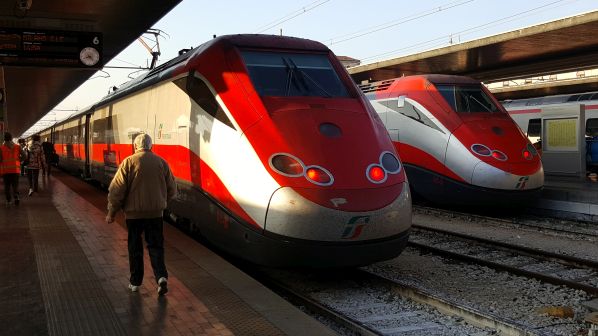Ebit, or operating profit, was down by 0.5% in 2018 to €714m with an Ebit margin of 5.9%. However, net profit grew by 1.3% to €559m. FS says net profit growth would have exceeded 30% taking into account non-recurring operations as windfall profits (€128m in 2017) resulting from new regulations on electrical energy for rail traction in 2015 and 2016.
Acquisitions
FS has made several acquisitions since April 2017. This increased the size of the workforce from 74,436 to 82,944. Acquisitions include Dutch bus operator Qbuzz, Busitalia Simet, British franchisee C2C, and Greek train operator TrainOSE in 2017, followed by Italy’s national road operator Anas in January 2018. Anas made a net profit of €399m in 2018 and Netinera, which has passenger rail concessions in Germany, achieved a net profit of €190m.
Rail and bus transport recorded a 4% increase in revenue in 2018 to €7.95bn, a 6.6% rise in operating costs to €6.27bn and an 18.4% jump in operating profit to €336m.
Revenue from short-distance passenger operations increased by €167m in 2018. This was generated from:
- Trenitalia: €59m
- Netinera Germany: €13m
- Trenitalia C2C, Britain: €27m, and
- TrainOSE, Greece: €66m.
Long-distance passenger revenue was down by 0.6% or €15m, while freight turnover fell by €18m due to what FS describes as “greater complexity and risk.”
Investment
FS increased investment from €5.4bn in 2017 to €5.87bn last year. Of this, €1.4bn is self-financed and €5.4bn is from government grants. Italian Rail Network (RFI) invested €4.77bn in the rail network, Trenitalia €798m, rail freight subsidiary Mercitalia €119m, and foreign subsidiaries €35m. FS Group net debt fell by €618m to €6.66bn in 2018.
“The activities and investments of the FS Group contribute, directly and indirectly, to the growth of the Italian economy by 0.9% of GDP,” says FS. The group was rated at BBB by Fitch and Standard & Poor’s in autumn 2018.

